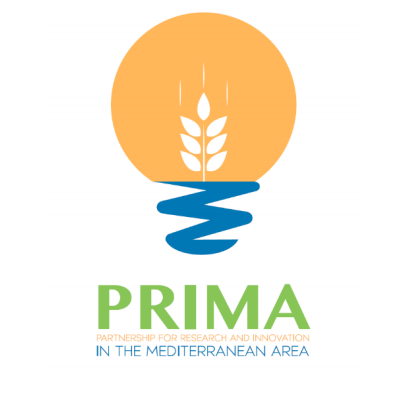
PRIMA Section 1 – Management of Water 2019
Deadline: Jul 16, 2019
CALL EXPIRED
CALL EXPIRED
Fisheries and Food
Agriculture
Agrifood
Marine and Coast
Sustainable Development
Water Resource Management
Pollution
THEMATIC AREA:
Management of water
TOPIC:
Topic 1.1.1 Sustainable groundwater management in water-stressed Mediterranean areas
TYPE OF ACTION:
RIA Research and Innovation action
TOTAL INDICATIVE AMOUNT ALLOCATED TO THIS CALL:
EUR 6.4 million
OPENING DATE:
17 December 2018
DEADLINE;
Stage 1 Pre-proposals - 28th February, 2019 (17:00h CET)
Stage 2 Full proposals - 16th July, 2019 (17:00h CET)
RIA – Topic 1.1.1: Sustainable groundwater management in water-stressed Mediterranean areas
Challenge
Groundwater is recognized as a critical source of water in the Mediterranean. However, underground water bodies are seriously threatened by overexploitation and, in coastal areas, salinization due to seawater intrusion. Pollution is an additional long-term threat, as sub-surface and surface water, soilwater and agricultural soil pollution often takes years before it is detected in groundwater. Pressure on Mediterranean groundwater resources is currently jeopardizing both farming activities and ecosystem functioning, including the associated wetlands.
Close links of this topic with the priorities, operational objectives and outcome indicators indicated in PRIMA SRIA are presented in Annex 1[1] to the Annual Work Plan 2019.
Scope
In order to ensure sustainable use and protection of Mediterranean groundwater aquifers in the frame of climate change, water over-abstraction in the region, all water balance components and water quality and quantity risks related to the intensive agricultural activities need to be comprehensively assessed and analysed. This includes: i) water demands and their management; ii) the geo-physical aspects of water recharge and depletion; iii) non-conventional water recharge options and their quality aspects; and iv) the processes leading to seawater intrusion and groundwater pollution. Activities should be devoted to the development and validation of effective water management – in particular groundwater balances and optimised allocation systems for agricultural purposes, monitoring (on site and distant monitoring) and modelling tools to assess and forecast quantitative and qualitative aquifer status and trends.
Solutions are to be built upon the already achieved results in the region in sustainable groundwater management (including quantitative and qualitative aspects).
Special attention should be dedicated to the temporal water availability and variability of groundwater quality. In parallel, there is a strong need to improve advanced monitoring and early warning systems associated to the transport of pollutants from the soils and the vadose zone to groundwater. These systems need to focus on both point and non-point sources that causes the increasing groundwater pollution trends, as well as on a number of relevant pollutants (including organic pollutants). Systems will also provide real-time assessment of aquifer remediation efficiency. Advanced monitoring will provide data for the evaluation of impacts and trends, for the integrated planning of the allocation and quality management of urban, industrial and agricultural groundwater abstractions according to the impact of these activities on water quality, and for the assessment of possible future scenarios combined with optimisation processes. The socio-economic dimensions of sustainable management of groundwater resources will be analysed, focusing on issues like water pricing and water access for irrigation. Tools and solutions for decision support on remediation strategies will be produced considering local and regional water governance constraints. Capacity building activities on groundwater resources knowledge and sustainable management to support decision makers on remediation strategies are strongly recommended. Representative monitoring areas should be either initiated or maintained, ensuring replicability of the efforts in other Mediterranean areas with similar geological and environmental constraints.
Expected impact
Proposals should contribute to implement priorities set in the PRIMA SRIA and show the clear link of how expected impacts from the projects are going to implement the expected outputs indicated in PRIMA SRIA.
The project results must contribute to PRIMA Operational objectives 2/LAND AND WATER SUSTAINABILITY[2] [3]
The project results are also expected to contribute to:
- Strengthening the understanding of the analysis of basic components of the groundwater cycle in the selected Mediterranean study areas, and their temporal variability, includinghydrologic, environmental and socio-economic aspects.
- Improved resilience and security for groundwater resources, both in coastal and in-land areas[4].
- Early warning systems on aquifer overexploitation and pollution.
- Management strategies for the sustainable exploitation of aquifer water sources.
- Cost-effective and high-efficiency managed aquifer recharge (indirect and direct for potable water).
- New modelling routines for determining the basic components of groundwater cycle, including economic, social and technical aspects (e.g. groundwater accumulation and storage).
Public link: Only for registered users
 PRIMA
PRIMA


Please Log In to See This Section